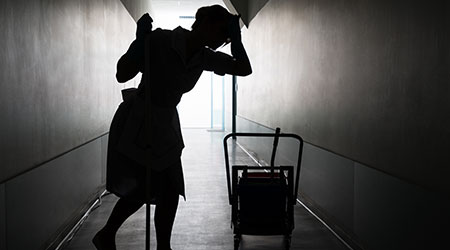
What do office cleaning staff, firefighters, police officers, doctors, nurses, paramedics and factory workers have in common? They all are at risk for shift-work sleep disorder.
Someone who works at night or often rotates shifts may share that risk. Working that type of schedule can keep staff from getting the regular sleep that most daytime workers take for granted, according to reports from Joy Online.
The reality is that 63 percent of Americans have reported that their sleep needs aren’t met during the week. And according to EHSToday, sleep deprivation can cause decreased productivity, accidents, incidents and mistakes which can cost companies billions of dollars each year.
Managers can watch for effects of sleep deprivation by looking for:
• Decreased communication
• Productivity deterioration
• Easily distracted
• Driving impairments
• Increased errors or mistakes on the job
• Poor memory
• Poor mood or inappropriate behavior
To prevent these side effects, psychologists are trying to gain a better understanding of how night and shift work will affect cognitive performance and which strategies could keep shift workers and the public safer. Some experts are suggesting managers teach healthy sleep practices as part of their occupational training programs.
Our bodies and brains evolved to relax and cool down after dark and to spring back into action come morning, say Joy Online reports. People who work the night shift must combat their bodies’ natural rest period while trying to remain alert and high functioning, regardless of how much sleep a person gets during the daytime.
Some survival tactics include:
• Respecting your daytime sleep and insist that others respect it too
• Developing rituals that mark the distinction between “night” and “day”
• Drink water and eat real food
• Wear dark glasses home and invest in cut-out curtains or an eye mask

 The Down and Dirty on Cleaning in Virus Season
The Down and Dirty on Cleaning in Virus Season How Surfactant Use is Expanding in Commercial Cleaning
How Surfactant Use is Expanding in Commercial Cleaning Operational Excellence Series 2025: Better Budgeting
Operational Excellence Series 2025: Better Budgeting